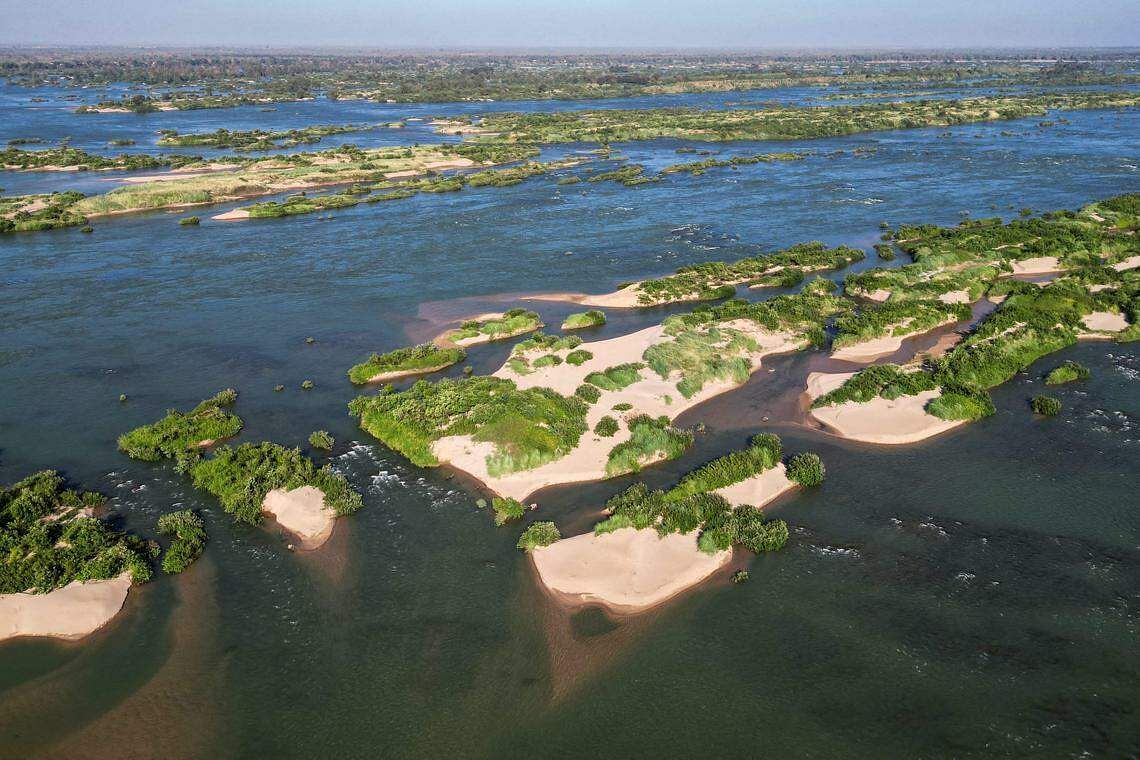Dear ST reader,
Helicopters. A media scrum. Protesters facing off. There was high drama in New York City when Donald Trump became, on Tuesday, the first former president of the United States to be prosecuted. As former Ohio governor John Kasich said drily, on MSNBC: “There are more interesting things happening, but I guess we’re all fixated.”
And indeed elsewhere in the world, work continues. Britain joined the Comprehensive and Progressive Agreement for Trans-Pacific Partnership, while in Laos’ capital Vientiane, talks to save the Mekong River are underway. And in Tokyo, plans are afoot to expand underground tunnels to store more rainwater to prevent flooding above ground.
The Trump Show

America made history on Tuesday by charging a former president with criminal behaviour – specifically, falsifying business records to conceal conduct that hid damaging information during the 2016 election. But as US bureau chief Nirmal Ghosh writes, the implications ripple beyond the indictment itself. They could affect Trump’s chances of becoming elected for another term as president.
Read more:
Media spectacle, loud crowds mark Donald Trump’s court appearance in Manhattan
Trump indictment: Deeper polarisation, uncharted waters ahead for the US
Trump’s arrest will put US at crossroads
Free trade gets a wee boost

At a time when free trade appears to be beating a retreat, some good news: Britain joined 11 nations – ranging from Singapore to Vietnam to Australia – in the Comprehensive and Progressive Agreement for Trans-Pacific Partnership, or CPTPP.
Global Affairs correspondent Jonathan Eyal explains why although CPTPP offers little immediate benefits to Britain who already has bilateral free-trade pacts with all but two member-states, it represents immense opportunities – not least, by scoring a seat at the Indo-Pacific table. Associate Editor Ravi Velloor delves into what all this could mean for the duelling membership applications of China and Taiwan.
Read more:
Regional groupings will help strengthen Asia in a troubled world: PM Lee
New rules needed

Free trade was similarly top of mind when Singapore Prime Minister Lee Hsien Loong wrapped up his week-long trip to China that took him to Guangzhou and Hainan before Beijing where he met Chinese President Xi Jinping. In an interview with the Singapore media including China bureau chief Tan Dawn Wei, he called for the setting of new ground rules so that global trade can continue without decoupling – at a time when the geopolitical rivalry between the United States and China is extending to other countries who are increasingly falling on one or the other side of the divide.
Read more:
‘You have to keep on making it better and better’: PM Lee on Singapore-China relationship
Saving the Mekong River

An ongoing pow-wow in Laos capital Vientiane over Mekong River has yielded a consensus by Thailand, Vietnam, Laos and Cambodia to take steps to secure its future. The river has been decimated by rapid dam building and climate change, endangering its fish stocks and threatening its stability. But as Indochina bureau chief Tan Hui Yee noted, Myanmar’s ongoing crisis could undermine regional cooperation.
Read more:
Don’t jump to conclusions over data on distressed Mekong River, says China official
What lies beneath Tokyo

Deep, deep, deep under Japan’s capital are cavernous tunnels and vaults, to help store rainwater. The network will be expanded, says Japan correspondent Walter Sim who with The Straits Times’ Graphics team, brings you this look at how Tokyo is mounting this engineering feat.
A new life, again

In South Korea, former advertising manager Pak Taia looks like any regular local. But she speaks only Russian and is desperately homesick for her home. Last year, the Ukrainian fled to the birth country of her grandmother in a bid to escape the bombs raining down on Kiev. South Korea correspondent Chang May Choon finds out what life is like for the some 3,000 Ukrainians who have sought refuge in South Korea, and what the East Asian country – plagued with record low birth rates - is also doing to woo them back.
Along with May Choon, Japan correspondent Walter Sim also examines what East Asian countries can do to boost dismal birth rates. Just over the weekend, Tokyo announced the launch of a new Children and Families Agency as a one-stop shop to tackle the issue.
Read more:
Actor Song Joong-ki a part of South Korea’s growing ‘multicultural families’
South Korea eyes migrant workers as it opens up immigration to combat population woes
Japan’s bold, new visa schemes may still come up short in global war for talent
Weekend classes on warfare

What are the differences between Taiwanese and Chinese army uniforms and vehicles? How to deal with propaganda and disinformation? Amid soaring cross-strait tensions, Taiwanese of all stripes are signing up for civil defence workshops to be better prepared in the event of a conflict. Taiwan correspondent Yip Wai Yee packs her school bag.
Read more:
Months-long Internet outage highlights Taiwan’s network vulnerabilities
‘Nobody wants war’: Taiwanese islanders who live near China

